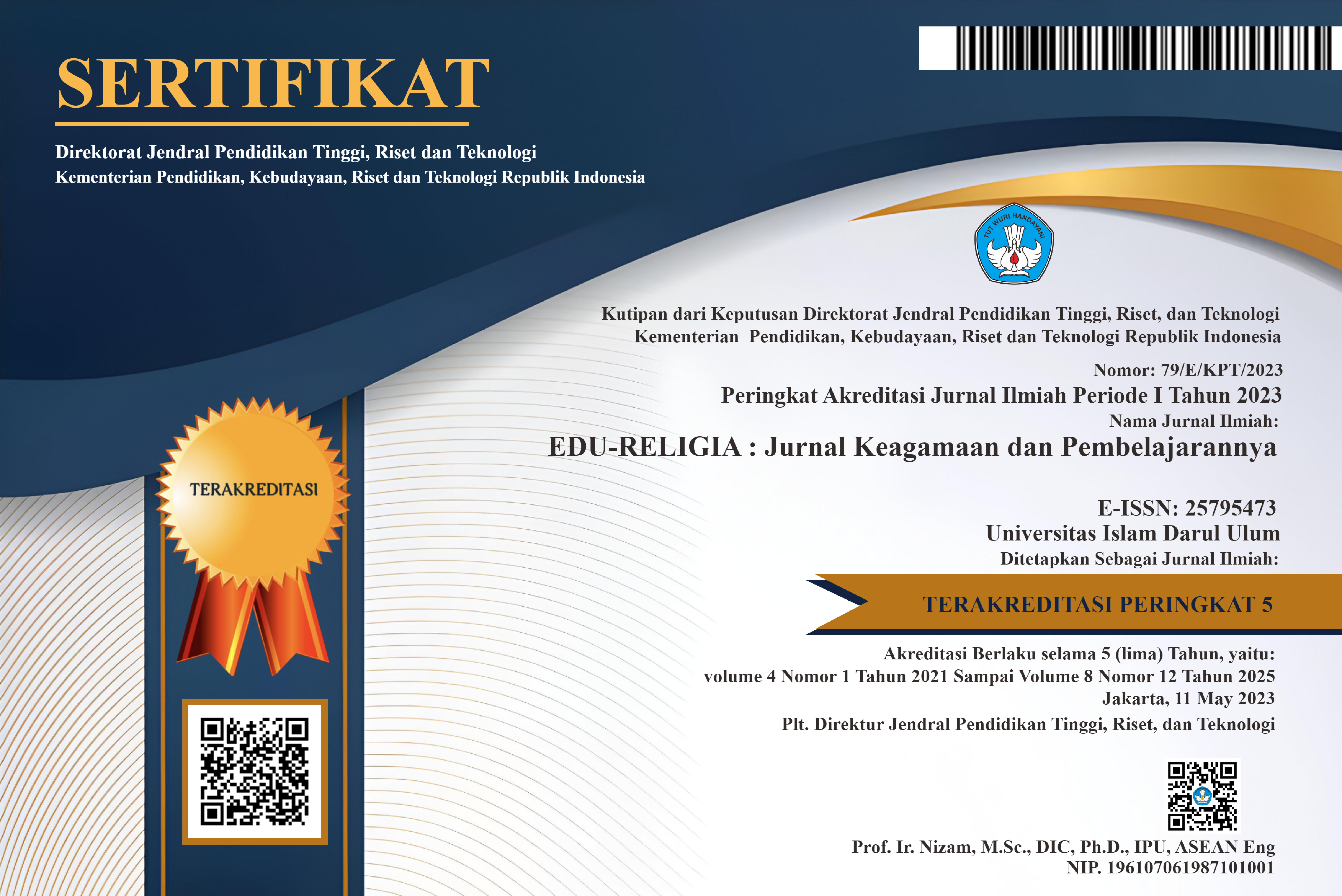The Islamic Religious Education Learning in Fostering The Religious Humanism of Students
Abstract
This research is descriptive qualitative research. Determination of the subjects of the study was carried out purposively. Data collection techniques are interviews, observations, and documentation. Analyze the data interactively with miles and Huberman models. Checking the validity of the data using source triangulation and techniques. The results of this study are as follows: (1) PAI learning steps in fostering religious humanism of class XII students at SMAN 1 Kembangbahu, carried out with teachers preparing learning tools ranging from Syllabus, porta, promissory note, RPP, KD mapping, Face-to-face Program (TM), Structured assignment (PT), Unstructured independent activities (KTMM), evaluation of knowledge and attitudes. Then the learning model uses scientific, PJBL, Incuri. (2) PAI learning in fostering religious humanism of class XII students at SMAN 1 Kembangbahu is carried out by exemplary methods, question and answer methods, discussion methods, project methods, and practical methods; and (3) The religious humanist character of class XII students at SMAN 1 Kembangbahu is in the form of respect and obedience to educators and mutual respect between fellow students, high enthusiasm for learning students, and diligence and patience both in facing various characters of friends or other students who are certainly different, patient in facing problems, in completing the tasks given and so on.
Downloads

This work is licensed under a Creative Commons Attribution-ShareAlike 4.0 International License.








